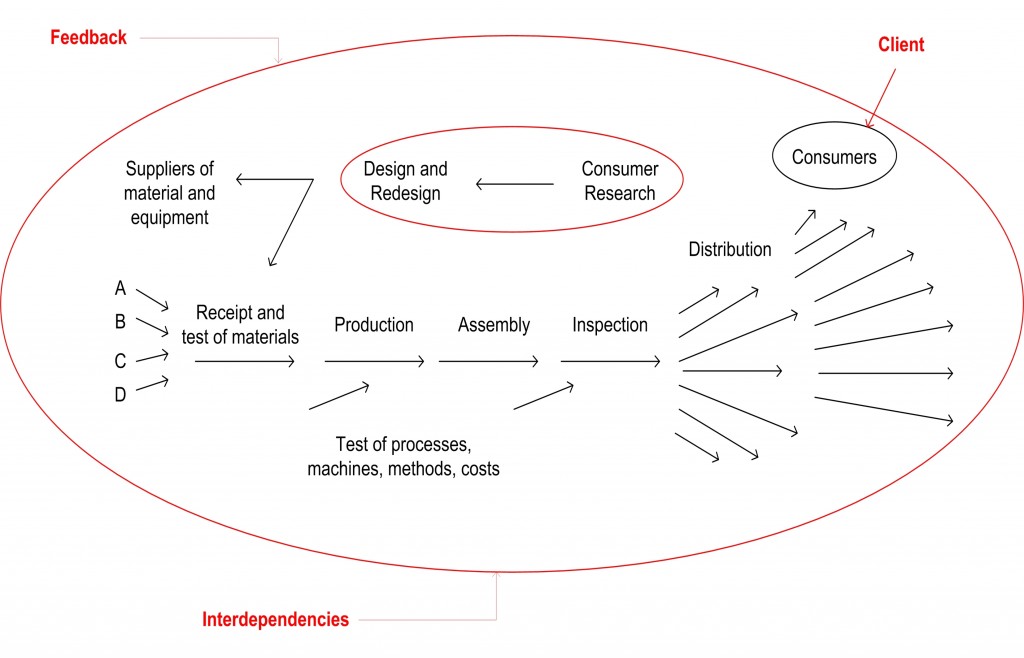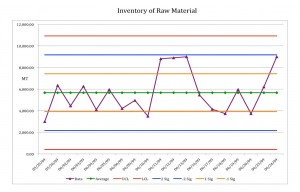As superbowl excitement rises, lessons can be learned from a team like the Patriots. They have the most systemic approach to football of any team and their consistent choice of players that other teams reject shows their dependence on their playbook, in other words, carefully mapped interdependencies that work towards achieving the goal. The team is not simply a collection of overpaid stars but a unit that works together for the common good of the team. We look here at how working for the common good, having an effective playbook and managing variation is relevant to organizations.
Business for win-win, not just winning
A systemic approach to management and economics has the goal of the common good inherently inbuilt. That is what makes it the most fitting paradigm and method for any enterprise that aims to be sustainable, not just economically but also morally and ethically. Moreover, within this paradigm, continuous improvement is based on a scientific feedback cycle of plan, study, thus avoiding ‘tweaking’ that could be tantamount to perilous ‘tampering’ with the system.
Why is it that systemic management automatically takes into consideration its environment, both human and otherwise? It is because any organization is an open system, and continuously interacts with its environment. This awareness alone places any leadership and management decision within the wider scope of input and output, what the organization receives and what it delivers, both internally and externally. Every organization, in this sense, is potentially a social enterprise.
We can see this from W. Edwards Deming’s famous illustration of Production Viewed as a System, clearly connecting the outside system of suppliers and customers with what goes on inside the organization. It is relevant to any organization, well beyond manufacturing.
Quality and Leadership
A Leader sees Quality as larger than life, an all-encompassing attribute that permeates everything we do. Quality is grounded in the belief that management in any shape or form is prediction, and the ability to predict is the essence of any epistemology. Domenico Lepore
So how can we avoid tweaking and be sure that the decisions and actions we take will not be tampering with our system? We do that through an aspect of management that perhaps more than any other defines the sustainability of an enterprise: Quality. Toyota built its reputation on Quality and has paid the price for letting that priority slip.
Managing variation is a mindset, not a bunch of techniques
In larger enterprises, Quality may be relegated to a function, a department, or simply a set of regulations imposed by a Certification process. Instead, Quality, no matter the size of a company, has to be something well beyond a technique. It has to be a mindset, an attitude, and it has to be monitored, measured and addressed continuously. How do we do this? By understanding the processes that make up our organization, and the variation that affects them.
Variation affects every process in our daily and working lives. It’s impossible for a process to be repeated the same way exactly. Just think about people getting to work on time and the variation involved:
– How many minutes do people stay in bed after switching off the alarm? Perhaps they stayed up late the night before, so they want to stay in bed a few more minutes;
– Do they make the coffee or does some other family member make it?
– Is the bathroom free or do they have to wait to get in?
– How long do they stay in the shower and how long will they take to get dressed?
The list goes on, and the arrival time depends on how these simple actions, with their associated variation, are combined together. Why can’t any process be standardized so that no variation is allowed? It is because in nature there is a ’variable’ called Entropy that accounts for the variation associated with every process. Any organization, or system, is naturally affected by the increase of Entropy. The day-by-day repetition of simple actions at our work place will never be the same because of the natural increase of Entropy.
Variation affects all the processes in our organizations. As Dr. Deming tells us, the essence of management is prediction; so for leaders and managers to do their job they must ensure a stable and predictable environment. In other words, the job of leaders and managers is to reduce variation.
A Playbook for organizations
A leader understands that a system can develop and continually improve its results towards the stated goal if people in the system see in what they do for the system an enhancement of their personal life. A leader understands that what people do and what people are must be one. Domenico Lepore
Reducing variation starts with mapping the processes in our organization (see How to Shift from Underperforming Silos to a Sustainable System) so we can understand the interdependencies. At Intelligent Management we guide organizations to also use a Playbook, like the teams of the NFL. This means a detailed and rigorous mapping of all the interdependencies that make up organizations/systems, allowing them to monitor and improve in a predictable way. By choosing key points in processes to monitor, they can gather the relevant data. With this data they can build Process Behaviour Charts (Control Charts) that allow them to extract meaningful information from the data.
They will be able to detect if their processes are in statistical control, and if they are not they will know where they have to take action. It is a relentless and rigorous process, and it can make the difference between success and failure.
When we do not understand our processes, when we do not know if they are predictable or not, we may be producing good results, but if our processes are not stable and predictable, we have no idea of what will happen tomorrow. It is that serious. And we have no idea of what effect our processes are having on the world beyond our own business. We’ve all lived through the disasters of recent crashes, spillages and bubbles. So much of this could be avoided with the simple introduction of statistical control. (PS. Go Patriots!)
Sign up to our blog here and shift your thinking towards broader, systemic possibilities for yourself and your organization.
About the Author
Angela Montgomery Ph.D. is Partner and Co-founder of Intelligent Management and author of the business novel+ website The Human Constraint . This downloadable novel uses narrative to look at how the Deming approach and the Theory of Constraints can create the organization of the future, based on collaboration, network and social innovation. She is co-author with Dr. Domenico Lepore, founder, and Dr. Giovanni Siepe of ‘Quality, Involvement, Flow: The Systemic Organization’ from CRC Press, New York.








Leave a Reply